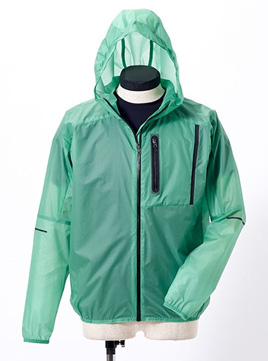Japanese fibres, chemicals and engineering company Toray Industries, announced the development of a nylon 510 fibre that incorporates 100% biobased synthetic polymer content as defined under ISO 16620-1: 2015, the international standard for the biobased content of plastics. Ecodear N510 is the first 100% plant-based nylon fibre in Toray’s Ecodear lineup and is expected to be put on the market by Autumn/Winter 2023.
Toray obtained Ecodear N510 by polymerizing sebacic acid from castor-oil plants and pentamethylenediamine from corn and spinning waste. Unlike other wholly plant-based nylons, Ecodear N510 has a high melting point and outstanding dimensional stability. It is as strong and heat-resistant as nylon 6, the company says.
The company has created diverse potential applications for Ecodear N510 as a sustainable offering for high-end markets. While primarily for sports and outdoor fabrics, they extend to lightweights, cut-and-sew fabrics and innerwear lace materials.
The Ecodear N510 textile initial production volume should be 200,000 metres by the end of March 2023, growing to 600,000 metres in March 2026. Ecodear N510 fibre sales are targeted for Autumn/Winter 2023 2024, with an expectation of a monthly supply of 3 metric tons monthly in the year ending March 2024.
In the early 1950s, Toray became the first Japanese company to manufacture nylon. Apparel and other wide-ranging applications over the years have reflected the fibre’s excellent flexibility, durability, wrinkle resistance and washability. Toray already offers partially plant-based polyester, nylon and other polymers.




